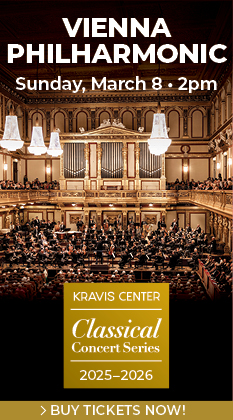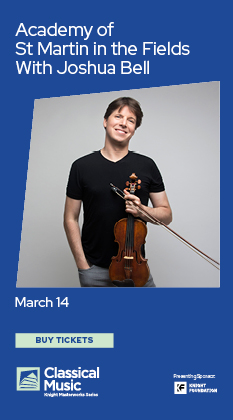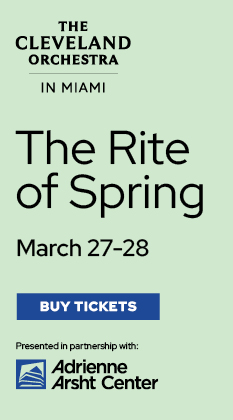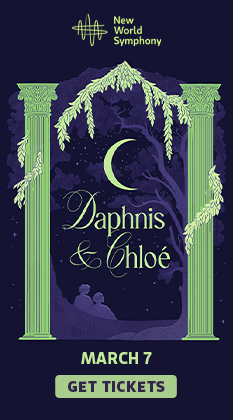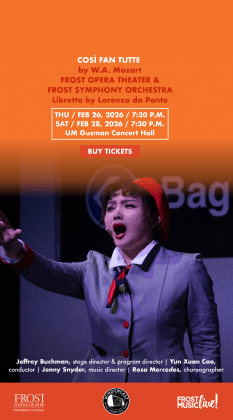Quigley, Seraphic Fire at their finest with Bach to open Enlightenment Festival
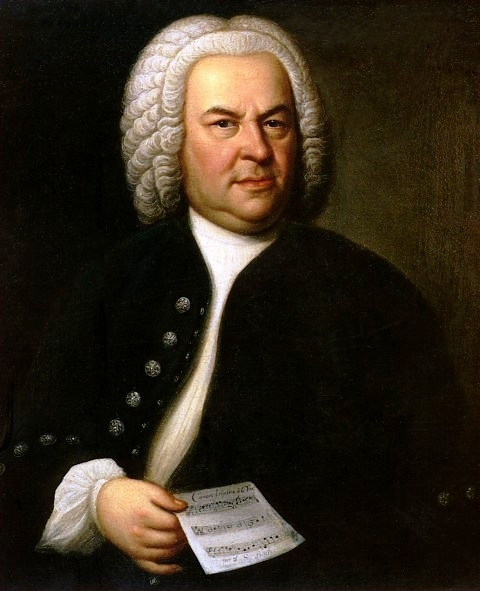
Seraphic Fire opened its Enlightenment Festival with three cantatas by Johann Sebastian Bach Thursday night at St. Sophia Greek Orthodox Cathedral in Miami.
The music of Johann Sebastian Bach has been central to the repertoire of Seraphic Fire. As the chamber choir celebrates its 20th anniversary, it was entirely appropriately that the group’s third annual Enlightenment Festival should be devoted entirely to Bach’s works.
On Thursday evening, artistic director Patrick Quigley led a program of three cantatas at St. Sophia Greek Orthodox Cathedral in Miami. Subtitled “Life/Death,” the concert displayed the soulful, reverent side of the master’s choral works.,
Herz, gehe nicht ins Gericht, BWV 105, is one of Bach’s darkest cantatas, a plea for forgiveness and redemption for a sinner. The opening chorus suggests the grandiose choral openings of the composer’s passion settings. Quigley opted for a moderate tempo, allowing clarity and transparency for the individual voices and contrapuntal lines. The thirteen-voice choir and fifteen instrumentalists belied their number in the power and cumulative impact of the section’s concluding pages.
The austere declamation of alto Cecilia Duarte’s recitative set the stage for the cantata’s most famous aria “Wie zittern und wanken der Sünder Gedanken.” The eloquent and expressive melody was paired with an elaborate oboe obbligato, played with rich tone and elegant phrasing by Geoffrey Burgess. The purity and spare vibrato of Rebecca Myers’ soprano brought grace and astute musicality to the aria’s sublime melodic paths.
Although heard only briefly in recitative, the depth and dramatic projection of John Buffett’s bass registered a tremendous presence. In the pivotal aria of the protagonist seeking a higher, better existence, the refined tenor of Brad Diamond, one of the choir’s stalwarts, easily handled the tricky rhythmic pulse while offering robust vocalism. The splendid corporate sonority of the final chorale emerged both solemn and uplifting.
Vergnügte Ruh, beliebte Seelenlust, BWV 170, is one of Bach’s most unusual scores in this genre. It is scored for one solo voice without chorus. The role of the organ, usually part of the continuo with cello, is much larger. In the central aria, the organ plays the principal melodic line on top of the strings rather than merely offering underlying support. The work’s protagonist longs for a better life in the heavenly beyond, divorced from earthly ills.
Reginald Mobley, a former Seraphic Fire regular who has gone on to have an international solo career, brought an ethereal countertenor sonority to the three important arias. His agile coloratura was free and even throughout a wide range. The beauty of his timbre and artful shaping of long thematic paragraphs could turn fierce and angry in recitative but the sincerity of his concentrated introspection imbued the performance with exceptional mastery. Organist Leon Schelhase was a full partner, dovetailing Mobley’s shaping of phrases and bringing nobility of line to Bach’s discourse. Quigley drew vigorous playing from the string ensemble, the upward flourishes picturing the soloist’s hopes to arrive in Heaven.
Aus der Tiefen rufe ich, Herr, zu dir, BWV 131 is one of Bach’s earliest church works but it represents the composer at his most inspired and innovative. In the two arias, a soprano and alto choral contingent join the soloist which is rare in any of Bach’s sacred compositions. The oboe is an almost constant solo instrument throughout the work’s five sections. Meg Owens brought sweetness of instrumental sonority, urgency and vivid projection to her important role. The choir excelled in often high choral writing with the male voices particularly strong. In the final chorus, the sheer energy and vibrancy of the singing engendered a joyous ray of hope.
The two soloists were exceptionally distinguished. Bass Steven Eddy’s crisp articulation was matched by the enticing and angelic halo of female voices surrounding his solo lines. In the aria “Meine Seele wartet auf den Herrn,” Jacob Perry, a new member of the choir, revealed a lyric tenor with an even range from a firm top register to the lowest notes. His patrician sense of phrasing and tonal luminance were a wonderful surprise. One looks forward to hearing more from this gifted artist.
Quigley showed himself once again an absolute master of this repertoire. He astutely balanced lively pacing with a fine feeling for the depth of Bach’s religious faith and expression. Under concertmaster Edson Scheid, the chamber orchestra played with unanimity and Baroque stylishness. Cellist Sarah Stone’s firm continuo work was first among equals.
There are three more opportunities to hear this unique, superbly performed program.
Seraphic Fire repeats the program 7:30 p.m. Friday at St. Philip’s Episcopal Church in Coral Gables; 7:30 p.m. Saturday at All Saints Episcopal Church in Fort Lauderdale; and 4 p.m. Sunday at All Souls Episcopal Church in Miami Beach. seraphicfire.org
Posted in Uncategorized
Leave a Comment
Fri Feb 17, 2023
at 3:25 pm
No Comments
